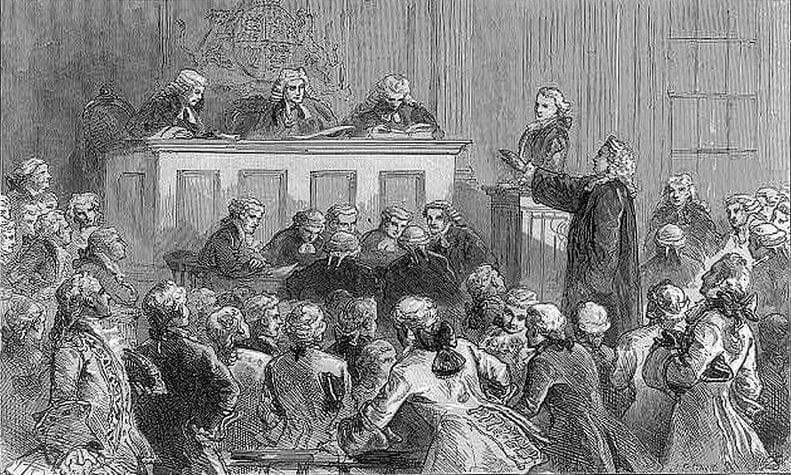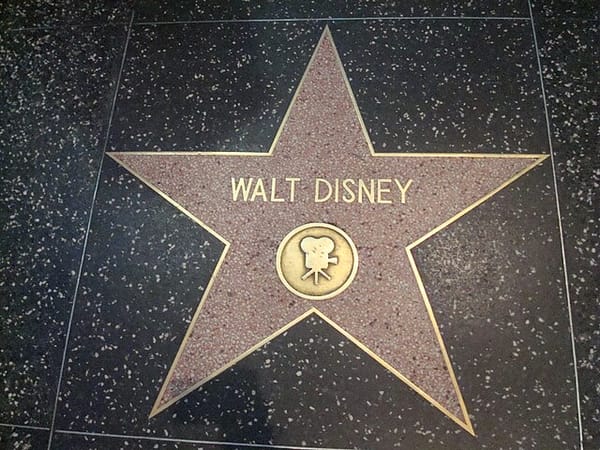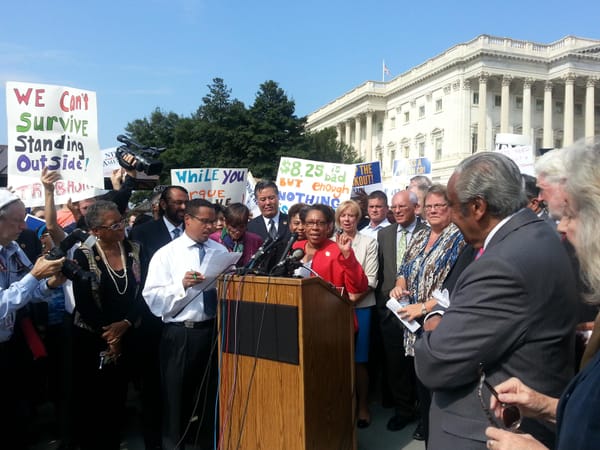A Dignified but Ignominious Neutrality
It's unclear precisely why the Post and Times have taken this direction ...But their decisions feel like ‘neutrality’ not in the sense of reasoned independence but rather a cowardly refusal to make a stand.

The Washington Post has now joined the Los Angeles Times in refraining from endorsing either presidential candidate in the 2024 election. This decision was taken ostensibly to respect readers’ independent ability to make up their own minds – but it reads as an utter failure to stand up to those marginalized and vulnerable due to this election and specifically due to Donald Trump’s proposed policies. Timothy Thomas Fortune, a late 19th century publisher of Black newspapers in New York, described the press of his own day as unwilling to take up the cause of the ‘Negro or the Indian’, either actively aiding in oppression or assuming what he calls “a dignified but ignominious neutrality.” Neutrality is indeed what the Post and Times seem to be aiming for, but it is an ignoble goal in the face of the dangers confronting the country.
Absolute, unbiased neutrality is commonly presented as the goal of the news (as opposed to a somewhat artificially distinguished ‘opinion’) section of a newspaper. It is unclear that this is even possible, and certainly has not been seen anywhere near universally as desirable. Fortune’s own publications would certainly never claim to strive for neutrality, though he did aim to reveal the truth. Indeed, the same is true of most of the luminaries in the American journalistic tradition – from John Peter Zenger to Willian Lloyd Garrison and Frederick Douglass to Fortune’s own protégé Ida B. Wells, the American publishers who are remembered heroically today are those whose pursuit of truth required them to break with established opinion and take decidedly un-neutral stances. The great majority of newspapermen (and they were until recently overwhelmingly men) showed no such bravery, but those are not the ones who have been remembered today. A paper presenting in an unbiased way both sides of slavery or lynch law might sell a lot of copies – it might even do some good in informing its readers – but it is unlikely to be remembered as a force in furthering the prosperity or liberty of its readers.

In any event, contrary to the standard line, neutrality is not the true goal of the paper, even today. For example, no one expects the Post to be neutral about crime – refusing to take a stance, for example, on whether armed robbery is good or bad. This also applies on a larger scale; when wars or terrorism threaten the country, it is absolutely expected that the media serve not as a perfectly neutral arbiter of truth, but as an asset to our society as a whole. This means not treating George W Bush and Osama bin Laden with equal understanding, for example – something which no major American newspaper did at the time, nor could be expected to do.
Are elections an altogether different story? The Post or Times might argue they are – after all, Trump and Vance are working within the electoral system, within, to an extent, the social contract, unlike a robber or a terrorist. This might be reasonable, if Trump or Vance saw it that way. But in reality, they have already declared their intention to dismantle that contract. Indeed, by running for office after having led an insurrection as President, Donald Trump is already in contravention of the constitution by any straightforward reading. The fact that some number of justices, many appointed by the man himself, disagree does not negate the plan fact. Beyond that, however, both Trump and Vance have already shown a disdain for working within the system. Trump already had declared that his main opponent is ‘the enemy within’, giving himself and his supporters – many of whom have already engaged in vigilante violence – carte blanche to engage in violence and intimidation. Vance’s insistence on referring to legal residents (most prominently, Haitian nationals in Ohio) as ‘illegals’ despite the factual inaccuracy of the statement is less commented on but in a similar vein. If the law means nothing to Vance at present in his speech, what is it likely to mean to him as a executive?
That last note also shows how Vance runs directly against the one loyalty one expects all media to have: to the truth. Trump and Vance have been shamelessly and extravagantly dishonest for the entirety of their campaign. If for no other reason that this, media ostensibly dedicated to finding out the objective truth about the world has a responsibility to treat them as pariahs. In refusing to take a stance, the Post and Times have failed to show loyalty at least to the level of political honesty that makes their jobs possible.
It's unclear precisely why the Post and Times have taken this direction (though notably both have billionaire owners who could stand to gain or lose a great deal from a friendly or unfriendly Trump administration). But their decisions – announced shortly before the election and breaking with prior precedent – feel like ‘neutrality’ not in the sense of reasoned independence but rather a cowardly refusal to make a stand. Given the size of the threat the country faces, this is indeed a ignominious stance.



